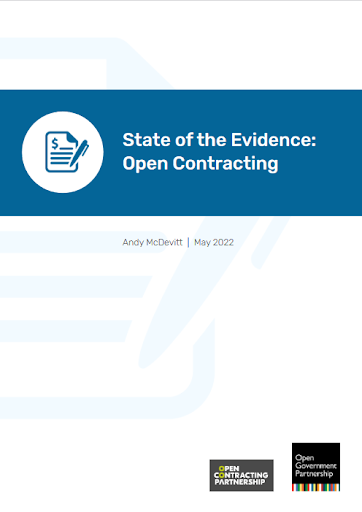
Published date
15 Mar, 2023
According to recent estimates from the Open Contracting Partnership and Spend Network, governments globally spend USD 13 trillion a year on public contracts for goods, services, and works The OECD estimates that on average, public procurement constitutes around 12%–20% of a country’s GDP Yet even though it is one of a government’s activities most vulnerable to waste, fraud, and corruption, less than 3% of procurement spending is published openly.
This paper reviews the available empirical evidence on the effects of open contracting on a range of outcomes, including cost savings and efficiency, reducing corruption, improving service delivery, and increasing social inclusion.
Other evidences
Public procurement counts for 14% of the EU’s GDP. Businesses, especially SMEs,seek lower barriers to participati...
Learn moreOpenness in procurement can improve procurement in multiple ways, including more integrity, efficiency, level playi...
Learn moreThis document can function as a roadmap for procurement agencies to create mechanisms aimed at analyzing informatio...
Learn more

